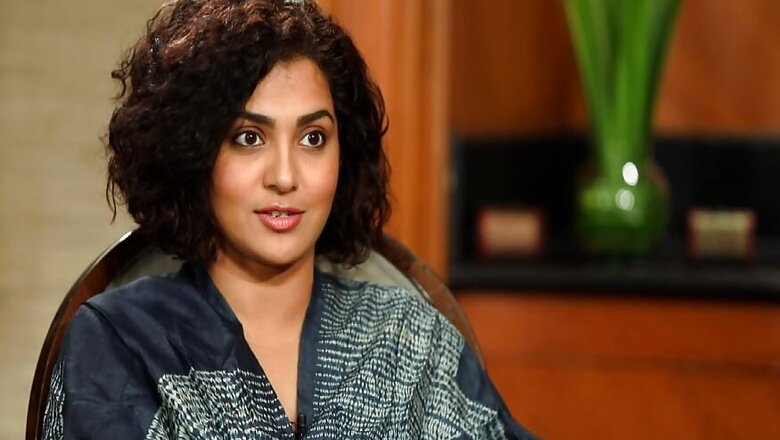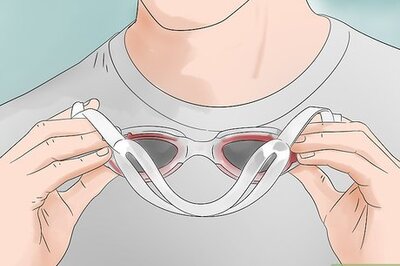
views
Malayalam film actor Parvathy Thiruvothu has come out in support of the Supreme Court verdict allowing women of all age groups entry into the Sabarimala temple amid protests in Kerala.
Parvathy says that it was ingrained in her since she was born that women are impure when they menstruate, but she has always been against the idea. “If I want to go to a temple, I go,” she says.
She talks to Anuradha SenGupta at length about why so many women are against a verdict that empowers them.
Q: Kerala is traditionally seen as a matriarchal society, has a high literacy level, and has so many working women who support their families. How empowered are Malayali women? Is there a difference between the image and reality?
A: There seems to be a distance between what's on paper, the statistics and the mindset of the people. You are the second gender, the third gender, fourth gender, you’re numbered according to your gender. Women don’t see themselves as people first and that has been ingrained in all of us. We are not individuals, we are our gender first and anything else, comes later. This was there with me as well - what clothes I wear, how I speak to my parents, how I speak to my brother, how I speak to a man.
I understood there was this distance between what’s on paper and action when I was 17 and entered the industry. I could feel the male gaze, when they speak to me, they are speaking to a woman and not a person. I found only one or two men who were speaking to me as individuals and it was not sitting well with me. Even if I see that my mom is really outspoken or my aunts are, I still feel that there is this understanding amongst women to be okay with it as well.
Q: So you are liberated but the framework of how far that liberation extends is imposed from outside. Right?
A: We are empowered to the extent till which men are still comfortable.
Q: A lot of women in Kerala are reacting to the Sabarimala verdict. Why are they against the verdict?
A: I have not actually commented on the Sabarimala issue since it's happened, but for me this conversation has been happening all my life - about menstruation and impurity, and I have always been against it. I have always asked this question, I stopped going to temples. I wouldn't mind going to temples, I didn't want to tell anybody what my business is, whether I am menstruating at the time. If I want to go, I go.
I'm sure I'm going to get a lot of flak for this, I'm definitely with the verdict. But then when you really strip down the religion and the patriarchy ingrained in religion, you have to peel a lot of layers before you even get to a logical conversation with these women. With regard to the film industry, fighting women is way more difficult than fighting with men. We have senior actresses who have also gone through assault who are like 'why are you creating a ruckus? Can’t we all just get along?’ I could not believe that you are hearing it from actresses whom you look up to, who have been here for years and years, and who have gone through the abuse. One can’t understand why they are alright with the muzzling, keeping quiet. It's a very grey space to be in.
I think definitely, this is coming from a space of being okay and also not creating issues. Everyone wants to get along, have peace of mind and also believe sometimes that women are impure when they menstruate. It's been ingrained in me since the time I was born. I can see that in every woman. You are about your body, your purity lies in your vagina or your virginity, for that matter. That needs to be taken away and for that I don't know how many years or generations it's going to take, but our voice has to be sustained. I'm scared that it will get muzzled soon if we don't keep it up.
Q: It's been quite traumatic, the last few months, and for you guys - since the last year, and all of us women collectively for all the years we've existed, isn't it?
A: It has been tough but the realisation itself is the most traumatic experience. The fact is that you are all right keeping it within yourself, you kind of made your peace with it, and you blocked it out of your system. But now, what's happening is you're unclogging the drain and more ghosts are coming out that you never even thought were a problem.
Q: You have just talked about being assaulted - how are you dealing with that?
A: So, all, the assaults that I have gone through, I have been that woman too, who is all right with the idea that when a man loves you, your body or your entire being belongs to that man - which is why I was so vocal about the movie Kasaba. I was vocal about content in cinema that, when I grew up, I watched movies where stalking a women is glorified. It still is.
This whole thing of him abusing you - oh, he must love you. You know that whole crazy theory that - oh a man abusing, he’s not soft, he’s a man. You need to heal him. The whole onus is on women to take care of men when they are in love because somehow men can't handle love, can't handle being soft. This is notion is wronging so many men as well. So, I went through that, which is why I'm still very vocal about the fact that we shouldn't glorify or represent female sexuality in cinema the way it is being shown.
I want to speak about my body with another woman, I had many such conversations. But when I was younger, before I was 17, I was a whole other Paravthy. After 17, it was a constant relearning as to what self-respect is as a person and because I was that woman, I know how those women think.
(Catch the full interview at Off Centre with Anuradha SenGupta)


















Comments
0 comment